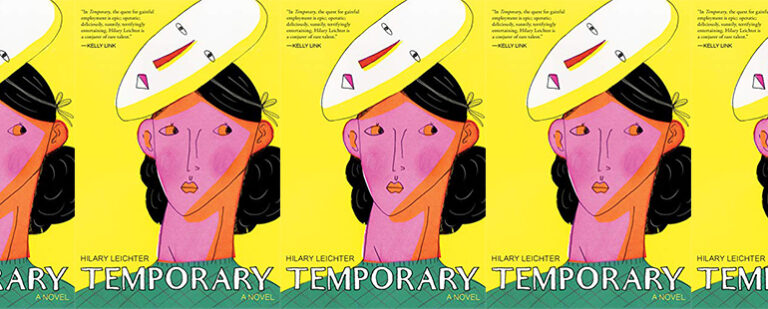How to Avoid Homelessness and Starvation As a Writer
As the MFA vs. NYC book launches, as Emily Gould’s essay from said book makes the rounds, and as the bookternet explodes over the latest publishing controversy, I can’t help but be bored by the whole school vs. experience argument. I mean, forget all that. We’ve been arguing that one to death for eons. What really pops out to me in Gould’s essay is the financial hole she eventually found herself in—being somewhat familiar with financial holes myself.
Full disclosure: I never went to grad school, and have always been happy with where my autodidacticism has gotten me. I happen to learn more effectively by diving into experiences with only a moderate level of preparedness vs. sitting in a classroom and taking notes.

Still, I believe that no matter which path you take as a writer, you will sometimes feel like a success, you will sometimes feel like a failure, and you will always have to work hard to maintain self-sufficiency.
With that being said, here are my own tips for avoiding homelessness and starvation as a writer, influenced heavily by my own experiences.
1. Get real. So you want to be a writer. Awesome. We have that in common. I assume you also want to buy an endless number of books and pretty dresses, have a roof over your head, eat something other than grilled cheese and ramen every day, and still have some money left over for fun times. So it’s time to get down to the nitty-gritty.
Look at your bills and figure out how much money you need to survive from month to month. Use this amount to figure out your annual salary goal. Break this down further into a monthly income goal. Then, because freelance income can obviously fluctuate from month to month, try not to have a panic attack. Hopefully, with a bit of hustle, you’ll be able to counterbalance those lower-income months with higher-income months.
2. Marry someone with a more lucrative job. After having a panic attack and realizing that you are on the verge of dying, consider marrying for money. I did! (Okay, so he wasn’t making the big bucks when we first got married. I just happened to get lucky later on.)
3. Be willing to go beyond your art. Okay. So you’re not going to marry for money. I’m sorry. That was terrible advice. What you should do, however, is be willing to mix it up. Diversify. Balance the fun assignments from your favorite online mags and literary magazines with work that actually pays the bills.
As a free agent, you should never rely upon any one type of work, especially when that work is characterized by pitching, waiting, more waiting, more waiting, maybe landing the assignment, pushed-back pub dates, and payments made at least 30 days after publication. (Why are we doing this again?) So think of what else you might be able to do.
The mix of things I do changes constantly. But at the moment, I’m a senior writer and editor for a nonprofit professional organization. I manage social media for another social services organization. I do freelance editing work for smaller clients. I teach yoga. And all of this still leaves me with the time and money to indulge my art.
Bonus: I recommend reading Marci Alboher’s One Person / Multiple Careers if you’re unconvinced by the idea of slash-careering it.
4. Always be building and maintaining relationships. Right now, you may be chasing down paychecks like nobody’s business. But eventually—assuming you pause and take the time to create authentic connections with the people you come in contact with in both your personal and professional life—the work will start coming to you. Really. That’s how I get almost all of my work now. Which makes me happy because I’m lazy, and the hustle can get old.
5. Don’t get desperate about the work you agree to take on. When the bank account is low, it’s easy to feel as if you couldn’t possibly say no to anything. But saying yes to a slew of low-paying jobs will leave you with no time to say yes to the good stuff. And it will also set a bad precedent. Example: one time, an online editor came to me with a possible project. When I told him the rate he was proposing was far too low, he was surprised. “Oh!” he said. “I thought we could afford you because I know you work for [She Who Pays Shitty Rates and Shall Not Be Named].” Sigh.
Also, always attempt to negotiate. Have a rate in mind when you go into negotiations. Know how low you’re willing to go before walking away. (Also: BE WILLING TO WALK AWAY.) If a client or publication’s proposed rates are too low, I often respond with something like, “I’d love the chance to work with you, but I’m typically paid $BLAH for this type of work. Please do keep me in mind if your budget grows to allow for professional rates!” Sometimes, they slink away in shame. But sometimes I am pleasantly surprised when they scramble to pay me what I want. It means they value quality writing.
6. Give people an added incentive to pay you. If you’re drawing up your own contracts, be sure to specify a timetable for payment, and to institute late fees. If you’re at the mercy of someone else’s contract terms, try negotiating for quicker payment (for example, ask for payment upon completion of the assignment, rather than upon publication). And if the checks are still slow in coming? Don’t be squeamish about following up. It doesn’t matter if you’re being a nag. Would they treat their other service providers so shabbily? (For more info on creating your own contracts, you should really subscribe to Scratch magazine and keep up to date on their Contracts 101 articles. Pure gold.)
7. Marry a web developer. Again, I got lucky here. I married someone who doesn’t complain (too much) when I hover over his shoulder and tell him exactly how my website or e-course platform or business card or bookmark should look. (I repay him with my winning and lovable personality.) If this option is not feasible for you, bootstrap it. You don’t need all the latest software and gadgetry to build up a platform, and you certainly don’t need it to get all the work done.
But when the money does start rolling in, do learn how to evaluate whether or not investing in your business with a professionally done color scheme or design or transcriber might be worth it.
8. Finally, don’t assume you’re not ready yet. Back when I was coaching beginning freelance writers, a common issue I saw was that no one ever felt they were ready. They thought they needed another degree. Another certification. More editing. They thought they didn’t have enough clips. Or enough experience. Or that their query letter wasn’t perfect enough.
You guys. I know you know this, but you can’t get experience without making experiences happen. I love continuing education in all forms, but…
You’re ready.
You got this.
Get ‘er done.
(image via)


